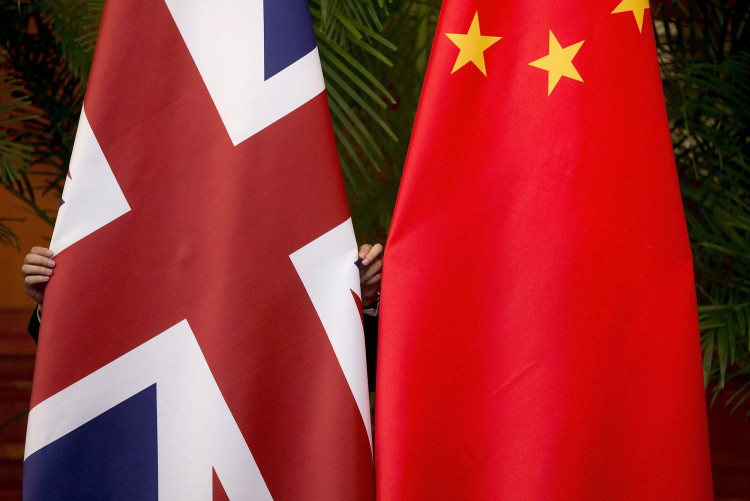The United Kingdom has rekindled its economic and financial dialogue with China after a six-year pause, marking a significant step in efforts to navigate a delicate balance between economic cooperation and national security concerns. Chancellor Rachel Reeves led a high-level delegation to Beijing, signaling Britain's intent to reset relations with the world's second-largest economy.
The talks, held on Saturday, were part of the revived China-U.K. Economic and Financial Dialogue, an initiative suspended since 2019 due to the COVID-19 pandemic and mounting political tensions. Reeves met with Chinese Vice Premier He Lifeng and Vice President Han Zheng, emphasizing a "stable, pragmatic" approach to the bilateral relationship.
Reeves described the discussions as productive and underscored the importance of collaboration despite fundamental disagreements. "Our two countries can work together on areas of mutual interest in the interests of our citizens, whilst also being frank and open with each other when we disagree," she said.
The meeting yielded agreements projected to inject £600 million ($732 million) into the U.K. economy over five years. Reeves highlighted the broader potential, estimating that the government's renewed engagement with China could ultimately deliver more than £1 billion in value. Areas of focus included sustainable finance, regulatory alignment, and expanded market access for British businesses.
China's Vice Premier He Lifeng characterized the agreements as emblematic of pragmatic cooperation, a term echoed by Reeves throughout the discussions. Among the highlights was China's commitment to issuing its first overseas sovereign green bond in London, a move Reeves welcomed as a sign of deepened financial ties.
Despite the optimistic tone, longstanding tensions loomed large over the talks. Reeves raised concerns about China's material and economic support for Russia's war in Ukraine and addressed issues surrounding human rights and civil liberties in Hong Kong. The discussions occurred against the backdrop of broader geopolitical complexities, including allegations of espionage, cyberattacks, and disputes over Taiwan and the South China Sea.
The renewed dialogue underscores the U.K.'s challenge in balancing economic interests with security priorities. Critics, particularly from the opposition Conservative Party, have accused the government of compromising on national security to foster trade ties. Reeves' visit coincided with economic turmoil in the U.K.'s bond markets, prompting political opponents to accuse her of neglecting domestic issues.
In an op-ed for The Times of London, Reeves defended the decision to reengage with China, emphasizing the country's significance as Britain's fourth-largest trading partner. She noted that exports to China support nearly 500,000 British jobs, arguing that disengagement would be detrimental. "Choosing not to engage with China is therefore no choice at all," she wrote.
For Beijing, the talks were an opportunity to project its openness to international collaboration amid strained relations with Western powers. China welcomed the U.K.'s reluctance to join U.S. and European Union initiatives imposing tariffs on Chinese-made electric vehicles and solar panels. However, Beijing remains cautious, particularly as geopolitical pressures could intensify under U.S. President-elect Donald Trump, who has signaled a more confrontational approach to trade with China.
Reeves' delegation included prominent figures such as Bank of England Governor Andrew Bailey and executives from HSBC and Standard Chartered, signaling the importance of financial cooperation in the renewed dialogue. The visit follows recent diplomatic engagements by Foreign Secretary David Lammy and Prime Minister Keir Starmer, who met with Chinese President Xi Jinping during the G20 summit in Brazil.






